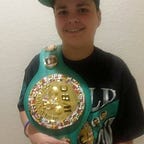How Getting Covid Twice Made Me a Better Leader
It’s been a year since the beginning of the Covid-19 pandemic in the United States. Not the happiest of anniversaries, but an interesting one, nonetheless. Last year was an incredible test of our agility, our adaptability, and our endurance. We had to think on our feet, make drastic changes, find our way on a map that was evolving from moment to moment (and in many cases, be a teacher to our kids). We’ve been constantly reinventing our businesses and ourselves, reinventing our strategies and our approaches.
Personally, I’ve had Covid with pneumonia … twice (in March and again in January), and each time I had to fight to recover while striving to take care of my company and my employees. Business as usual? Not even close. Here’s some of what I learned:
- I can work from a home office, even when the office is a bed.
- Against all my controlling instincts, sometimes I need to delegate and trust more.
- Extra time is great — if you use it to create something new.
To that last point, while recuperating, I used all my available energy to re-create our business into one that was far better equipped to run independently. I worked with my team to push our best resources into creating a marketing cloud with an emphasis on self-serve platforms that appealed to a broader base of potential customers. I stuck by my team and kept everyone on board and engaged, and, in turn, they stuck with me.
And yet almost every week continues to feel like another step further into the unknown.
Welcome to “the Great Reinvention.” The term was coined by Rishad Tobaccowala, a long-time Publicis senior strategist, a widely followed futurist, and the author of Restoring the Soul of Business: Staying Human in the Age of Data: “This is the first time in history when the entire world essentially stopped at the same time,” Tobaccowala says. “Unlike other crises such as the Great Depression or 9/11, this is a global, simultaneous political, financial, and humanitarian crisis … it’s the equivalent of an asteroid hitting the earth … this will move all of us to rethink everything, which is why I call it the Great Reinvention.”
At a very basic level, we’ve had to reinvent how we manage time and space; the former feels as if it has lengthened, while the latter feels as if it has shrunk. Many of us used to work down the hall from the office kitchen — now we’re working in our actual kitchens. The boundaries between our careers and our personal lives have dissolved, and we’re now managing both all day, every day, simultaneously. If nothing else, we’re learning how to be nimble and organized. What choice do we have?
For entrepreneurs, this can be a thrilling time. As I put it late last summer, this is a chance to “build the new.” Thanks to shelter-at-home orders and, for much of last year, shuttered restaurants and shops, it felt like the entire world moved online. This presented a great opportunity for revamping digital marketing strategies, ramping up social media outreach, and finding new ways to reach new audiences. Entrepreneurs love challenges, and the Covid-19 pandemic has given us a chance to meet and rise to them.
The year 2020 is behind us, finally, but 2021 won’t look much different, at least for its first half or three quarters. Whatever reinvention you’ve undertaken, keep at it; if it doesn’t work, try something else. This is the core truth of reinvention — it’s an ongoing process. Just ask academic, author, and entrepreneur Scott Galloway, who published Post Corona: From Crisis to Opportunity in November 2020. Galloway believes the survivors, the reinventors, will reemerge even more robust than they were prior to the pandemic; the companies with the smartest scale, the best data, and the most digital will rule the world once Covid-19 is in our collective rearview.
In 2021, we will start to hear many great reinvention stories, but my two favorite pre-Covid stories took place last century.
The first is close to home. My Uncle Richard was a vice president at Zayre, a chain of East Coast discount stores. Founded in the ’50s, the brand began to fade during the ’80s. In response, Zayre launched a new subsidiary, the TJX Companies. In 1988, Zayre sold its stores to Ames Department Stores, and the following year the company merged with the TJX Companies. What are the TJX Companies? BJ’s, HomeGoods, Marshalls, and TJ Maxx, some of the most successful discount retailers in North America! Zayre undertook a great reinvention, and it paid off.
The second is also from the ‘80s! If you’re a Def Leppard fan, you probably know this story. In 1983, after a few albums that failed to trouble the charts, the Sheffield, England, band released Pyromania, which kickstarted the pop metal genre and went on to sell 10 million copies. The band toured the world, conquered it (with the help of classic rock radio and MTV), and began work on their next album. About a month later, on New Year’s Eve 1984, Rick Allen, the band’s 21-year-old drummer, lost his arm in a car accident. Def Leppard circled the wagons while Allen worked on an electronic drum kit, one he could play with his feet, a great reinvention, for sure, and in 1987 the band released Hysteria, which sold 12 million copies in the U.S. alone — to date it has sold 25 million copies worldwide.
As another British “rock star,” Winston Churchill, once put it, “Never flinch, never weary, never despair.” Let’s rethink everything. Let’s reinvent, and let’s make it great.
